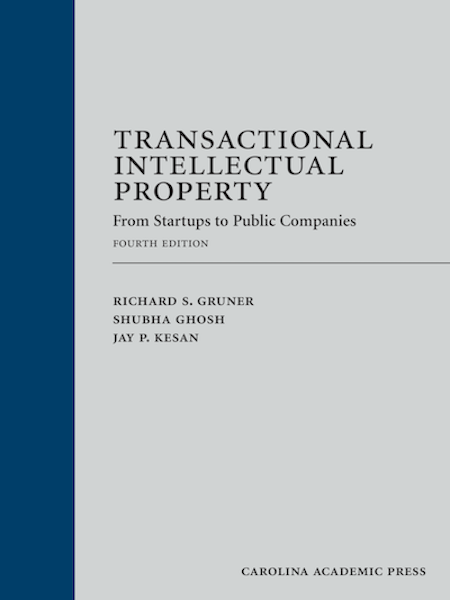Here you will find materials and updates for Transactional Intellectual Property, 4th edition.
Transactional Intellectual Property: From Startups to Public Companies, 4th edition
by Richard Gruner, Shubha Ghosh, & Jay Kesan
Carolina Academic Press | August 2018
ISBN 978-1-5310-0746-1
e-ISBN 978-1-53100-747-8
 Transactional Intellectual Property: From Startups to Public Companies, Fourth Edition, is the successor to Intellectual Property in Business Organizations: Cases and Materials. This transactional, problem-based casebook focuses on the legal issues and opportunities confronting businesses that develop and utilize intellectual property (IP). It calls on students to analyze and help resolve typical IP-based issues encountered as businesses engaged in creative enterprises are founded, financed, expanded, transferred to others, or terminated.
Transactional Intellectual Property: From Startups to Public Companies, Fourth Edition, is the successor to Intellectual Property in Business Organizations: Cases and Materials. This transactional, problem-based casebook focuses on the legal issues and opportunities confronting businesses that develop and utilize intellectual property (IP). It calls on students to analyze and help resolve typical IP-based issues encountered as businesses engaged in creative enterprises are founded, financed, expanded, transferred to others, or terminated.
The text is designed for law students in advanced classes concerning IP, technology transfer and licensing, business organizations issues as encountered in IP-based companies, and the law of science and technology. It is also suitable for engineering students seeking training in IP development and surrounding business considerations, as well as for business students in courses focusing on the legal problems of developing businesses. To aid students lacking a prior IP background, the text includes extensive background materials on important intellectual property standards.
